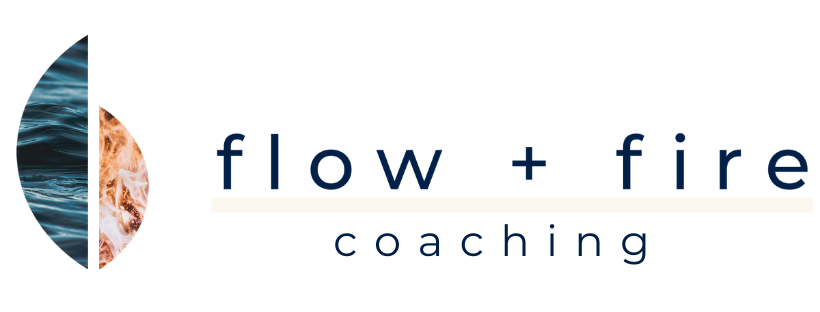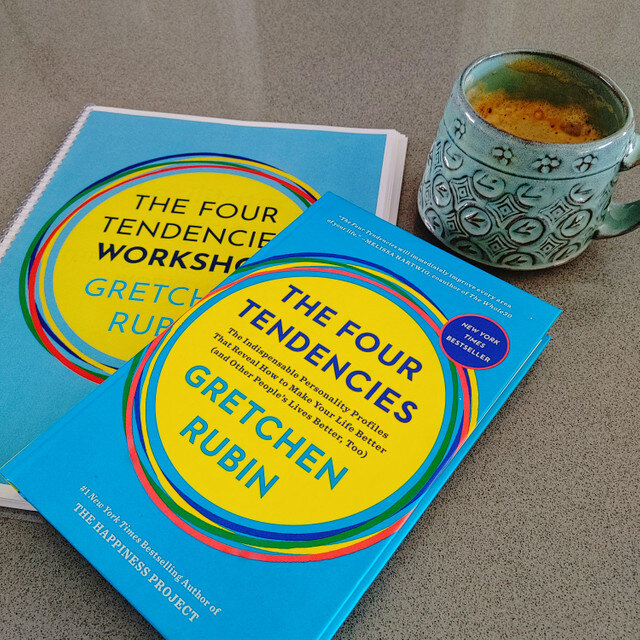The Four Tendencies: Why I Love It and Why I Teach It
Any personality quiz junkies out there? I love how personality frameworks and assessments can help you understand yourself in a deeper way. And there are so many to choose from! A quick Google search will give you many options including, Meyers Briggs Type Indicator (MBTI), the Enneagram, the Four Tendencies, and many more.
The first time I took the Meyers-Briggs Type Indicator (MBTI) was in university as part of a career assessment. My result was INFP , but curiously I came out as an ENFP when I took the assessment recently. So now I say whether I’m an introvert or extrovert depends on the day. Any “ambiverts” out there know what I’m talking about?
My sister introduced me to the Enneagram in 2017. This personality typing tool describes patterns in how a person interprets the world and manages their emotions. For an overview of the Enneagram, click here. I’m pretty sure I’m a 4, but I’m still investigating that one.
The thing about MBTI, the Enneagram and others is they take A LOT of time and mental energy to learn and understand. And don’t get me wrong, that’s a good thing! Learning about yourself is worth it.
By contrast, The Four Tendencies is simple enough to be understood easily in a matter of minutes, with a fairly broad understanding gained in a few hours. And that’s why I love the Four Tendencies!
I first heard of the Four Tendencies in Gretchen Rubin’s book, Better than Before. Rubin created the framework and shared it in her book then later released a book entirely focused on the Four Tendencies, called - you guessed it - The Four Tendencies. Naturally, I got my hands on that one as soon as I could.
The Core of The Four Tendencies
The Four Tendencies is a framework that helps us understand one thing: how we deal with expectations.
And let’s face it, expectations come up a lot in our lives and they affect our relationships, work, and even our personal habits. We all deal with two types of expectations: inner and outer expectations. Whether we generally meet or resist those expectations, identifies our tendency.
Knowing your tendency and learning about your strengths and weaknesses helps you accept yourself.
But it's also more than that.
The Four Tendencies not just about knowing your tendency. It's also about creating better relationships with the people around you because you can understand their tendencies too.
Find Out Which Tendency YOU Are
This is how the Four Tendencies are defined:
An Upholder meets both inner and outer expectations.
An Obliger easily meets outer expectations but struggles to meet inner expectations.
A Questioner questions all expectations and meets the expectations that make sense to them; essentially, they can meet their inner expectations.
A Rebel resists all expectations - inner and outer alike.
I'm a Questioner. That means if I'm expected to do something, I need to know WHY. And if I'm feeling stuck in a situation, I probably have a bunch of questions I need to ask before I can move forward.
Rebels, Obligers, and Upholders feel different about expectations though. That’s why the Four Tendencies Workshop is so insightful! There’s more to the framework than just choosing what fits you best from the above list. I highly recommend joining me for a workshop or reading the book.
Why I Teach the Four Tendencies
In early 2020, I received my license as a Four Tendencies Workshop Facilitator (woohoo!) so I could help people understand this tool. It has helped me understand myself and others, and I wanted give others the opportunity to absorb these insights too. And there’s something magical about learning together, in a workshop.
Once I was licensed, I had grand plans to facilitate in-person workshops for social groups, coaches, work teams for professionals development. Obviously, those plans got completely sidetracked with the outbreak of the COVID-19 pandemic.
But Not Anymore! Well, Sort of...
Rather than let my license sit on the proverbial shelf, I’ve decided to start delivering The Four Tendencies Workshop online. Click here to see when it’s being offered.
Here’s what you’ll learn!
From the official workshop description:
The “Four Tendencies” is a framework developed by Gretchen Rubin to explain the different ways people respond to expectations. The Four Tendencies Workshop allows participants to understand the differences among the four types—Upholders, Questioners, Obligers, and Rebels—as well as to engage in scenarios and discussions to practice applying that knowledge. Participants come away with specific actions to take to improve their relationships with clients, co-workers, patients, students, or trainees, as well as friends and family.

